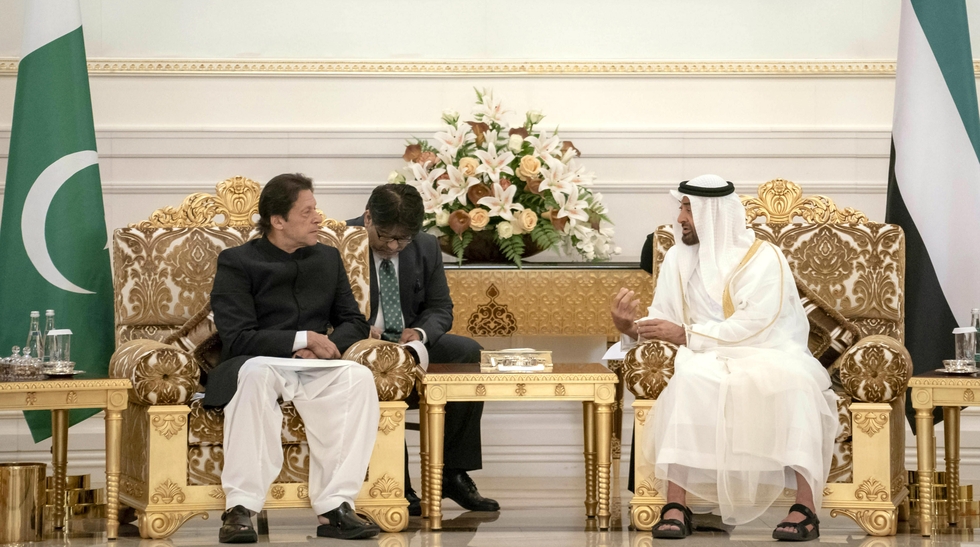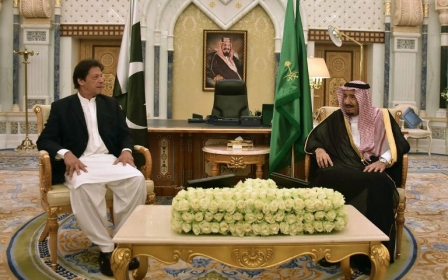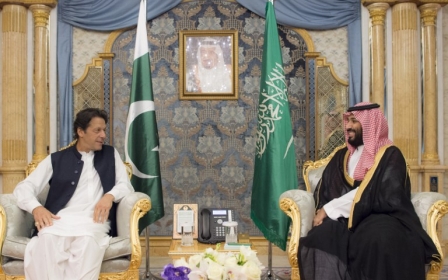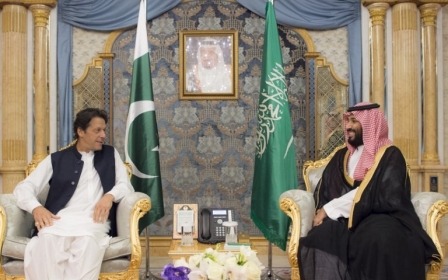UAE to deposit $3bn in Pakistan central bank to help ease economic turmoil

The United Arab Emirates will deposit $3bn in the central bank of Pakistan to help "enhance liquidity" as the country struggles with a balance of payments crisis, state media has said.
The transfer of 11 billion dirhams by the government-owned Abu Dhabi Fund for Development (ADFD) is expected to be carried out in the "coming days," the Emirates News Agency (WAM) said on Friday, while a Pakistani official said Islamabad also hopes the UAE will allow deferred payments for oil supplies.
Quoting a statement from the ADFD, WAM said the amount is "to support the financial and monetary policy of the Islamic Republic of Pakistan".
It will "enhance liquidity and monetary reserves of foreign currency" at the central bank, it added.
Hours after the WAM announcement, Pakistani Information Minister Fawad Chaudhry told the Reuters news agency that Islamabad was "also hoping to get deferment for oil payments" from the UAE.
Chaudhry declined to disclose the sum of assistance sought through deferred payments, but said this was part of the discussions that led to the UAE announcing it would deposit the $3bn with Pakistan's central bank.
The minister added that the UAE planned to make investments in Pakistan, including a refinery and desalination plants.
Pakistan Prime Minister Imran Khan paid visits to the UAE in September and November, holding talks that paved the way for the assistance package.
Islamabad is facing a widening balance of payments crisis, as its current account and fiscal deficit continue to balloon.
The rupee plunged almost five percent to a record low at the end of November, after what appeared to be a sixth devaluation by the central bank in the past year.
A team from the International Monetary Fund (IMF) visited Pakistan last month for talks with officials on a possible IMF bailout but the discussions ended without any agreement.
Pakistan, a regular borrower from the IMF since the 1980s, last received a bailout - to the tune of $6.6bn - in 2013, the AFP news agency reported.
Khan thanked the UAE on Friday "for supporting Pakistan so generously in our testing times".
"This reflects our commitment and friendship that has remained steadfast over the years," he said on Twitter.
The UAE announcement came days after Pakistan attended reconciliation talks between the United States and Taliban officials from Afghanistan hosted by the wealthy Gulf state in Abu Dhabi.
'We're desperate'
Pakistan also secured $6bn in funding from Saudi Arabia and struck a 12-month deal for a cash lifeline during Khan's visit to the Future Investment Initiative in Riyadh in October.
Speaking to Middle East Eye ahead of the trip, Khan said because of its dire economic crisis Pakistan had no choice but to prioritise good relations with the kingdom despite the killing of Saudi journalist Jamal Khashoggi, which prompted a widespread boycott of the Riyadh event.
Though shocked by Khashoggi's killing, he said the Pakistani government needed urgent access to Saudi loans to avoid defaulting on record levels of debt within months.
"We're desperate at the moment," Khan said.
Islamabad has also received billions of dollars in Chinese loans to finance ambitious infrastructure projects.
Khan, who took power in August, has promised to create an "Islamic welfare state," which will include the construction of five million homes for the poor.
New MEE newsletter: Jerusalem Dispatch
Sign up to get the latest insights and analysis on Israel-Palestine, alongside Turkey Unpacked and other MEE newsletters
Middle East Eye delivers independent and unrivalled coverage and analysis of the Middle East, North Africa and beyond. To learn more about republishing this content and the associated fees, please fill out this form. More about MEE can be found here.




